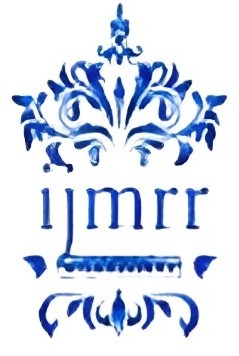Performance Analysis Of MIMO-OFDM Under Fading Channels
Abstract
The advancement of wireless communication has
ushered in the era of fourth-generation (4G)
systems, characterized by their reliance on
sophisticated techniques like Multiple Input
Multiple
Output (MIMO) and Orthogonal
Frequency Division Multiplexing (OFDM). This
paper focuses on the synergistic integration of
these two technologies to create an enhanced
communication framework known as the OFDM
MIMO system. This system is particularly
renowned for its ability to significantly improve
capacity and data rates, making it a cornerstone of
modern wireless networks.
In this study, we investigate the Bit Error Rate
(BER) performance of both traditional OFDM and
the OFDM-MIMO system. A crucial aspect of our
approach involves employing convolutional
coding, a technique designed to encrypt and
protect the data stream during transmission over
varying communication channels. To thoroughly
evaluate the performance of these systems, we
conducted
simulations
using
MATLAB,
incorporating three distinct types of channels:
Additive White Gaussian Noise (AWGN), Rician
fading. The simulation results reveal a marked
improvement in performance for the OFDM
MIMO system compared to the traditional OFDM
system, underscoring the benefits of integrating
MIMO technology.
Furthermore, the practical aspect of our research
was executed using two Universal Software Radio
Peripheral B210 (USRP B210) devices. This
involved a hands-on experiment where we utilized
two antennas for simultaneous transmission and
reception. The results demonstrated that the
transmitted signals were successfully recovered,
validating the effectiveness of the OFDM- MIMO
system in real-world scenarios.
This research not only contributes to the academic
understanding
of
advanced
wireless
communication techniques but also provides
valuable insights for future developments in high-
capacity, reliable communication systems











